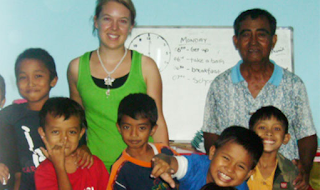Speech pathologists in Australia have either undertaken a four year undergraduate degree or a two year Masters degree in Speech Pathology. Through their studies, they had gained in-depth knowledge in a variety of areas relating to communication. They work with both adults and children with a range of communication or swallowing disorders. They are specialists in areas such as child development, language development, and speech delays and/or disorders. Through the assistance of these experts, many children with autism and other disorders have been identified and adequately assisted to improve their daily life.
 Speech pathologists in Australia have impacted the lives of many families who have a child with a disorder such as autism spectrum disorder. Their role is very significant. They help assess children to determine whether or not they fit the criteria for a specific diagnosis. Using the results from the assessment, they are able to tailor therapy to suit the individual needs of the child and their family. They are able to give advice surrounding a number of daily struggles typically experienced when a child has an autism spectrum disorder, such as coping with changes in routine. They use their acquired skills to enhance the child’s ability to function appropriately in their day to day life.
Speech pathologists in Australia have impacted the lives of many families who have a child with a disorder such as autism spectrum disorder. Their role is very significant. They help assess children to determine whether or not they fit the criteria for a specific diagnosis. Using the results from the assessment, they are able to tailor therapy to suit the individual needs of the child and their family. They are able to give advice surrounding a number of daily struggles typically experienced when a child has an autism spectrum disorder, such as coping with changes in routine. They use their acquired skills to enhance the child’s ability to function appropriately in their day to day life.
There are a number of speech pathologists in Australia that render services to children with speech and language disorders, including those resulting from autism spectrum disorder. If you have a child that is suffering from such a disorder, it is beneficial to refer them to a certified speech pathologist. They will be able to assess your child and develop an appropriate treatment plan to help your child reach their potential. Research has demonstrated that early intervention is most effective, and for this reason, it is never too early to seek advice or therapy.
Speech pathologists in Australia are capable of helping children with difficulties in learning, socialising/pragmatic development, voice, early literacy development, speech and language development, and other areas related to communication. If you have noticed your child (or a child in your class if you are a school or kindergarten teacher) is struggling in any of these areas, the best way to assist them is by referring them to a speech pathologist. They will give you the most accurate and useful guidance so you can help your child improve their communication skills.




